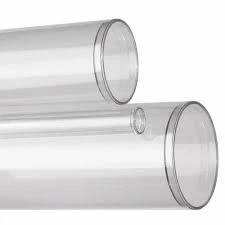Des . 04, 2024 09:16 Back to list
hdpe pipe for drip irrigation
HDPE Pipe for Drip Irrigation A Sustainable Solution for Modern Agriculture
Drip irrigation is increasingly recognized as one of the most efficient ways to water crops. This method involves delivering water directly to the plant roots through a network of pipes and emitters, minimizing evaporation and runoff. One of the key components that contribute to the effectiveness of drip irrigation systems is the type of piping used. High-Density Polyethylene (HDPE) pipe has emerged as a preferred choice for many farmers and agricultural enterprises. In this article, we will explore the benefits of using HDPE pipes for drip irrigation and their role in promoting sustainable agricultural practices.
What is HDPE Pipe?
High-Density Polyethylene (HDPE) is a thermoplastic polymer characterized by its high strength-to-density ratio. This material is well-regarded for its durability, chemical resistance, and flexibility. HDPE pipes are manufactured through a process that involves the polymerization of ethylene, resulting in a lightweight but robust piping solution suitable for various applications, including agricultural irrigation.
Advantages of HDPE Pipe in Drip Irrigation
1. Durability and Longevity HDPE pipes are known for their extraordinary resistance to environmental stressors such as UV radiation, temperature fluctuations, and chemical exposure. This makes them ideal for use in diverse climates and soil conditions. Their resilience ensures that they can withstand harsh conditions and have a long service life, often exceeding 50 years.
2. Lightweight and Easy to Handle HDPE pipes are considerably lighter than traditional materials like PVC or metal, making them easier to transport and install. Their flexibility allows for easier manipulation during installation, reducing labor costs and time.
3. Reduced Water Loss One of the primary purposes of drip irrigation is to minimize water loss. HDPE pipes significantly reduce leakages compared to older piping systems. With tightly sealed joints and durable materials, the chances of water escaping before reaching the plants are greatly minimized.
hdpe pipe for drip irrigation

4. Cost-Effectiveness Initially, the investment in an HDPE drip irrigation system may seem higher than traditional methods. However, the long-term savings in water consumption, reduced labor, and lower maintenance costs make HDPE a cost-effective option in the long run. Farmers benefit from lower utility bills and a more efficient irrigation process, ultimately leading to better crop yields.
5. Environmental Sustainability As discussions about climate change and resource conservation become increasingly urgent, the agricultural sector is under pressure to adopt more sustainable practices. HDPE is recyclable, and its long lifespan contributes to reducing plastic waste in landfills. Moreover, efficient water use through drip irrigation aids in the sustainable management of water resources.
6. Versatility HDPE pipes can be used in a variety of applications beyond just agricultural fields. They are suitable for landscaping, greenhouse operations, and even hydroponics, making them a versatile choice for many agricultural and gardening endeavors.
Installation and Maintenance
Installing an HDPE drip irrigation system requires careful planning and consideration. Farmers must assess their land's layout, crop types, and water requirements. Professional installation is often recommended to ensure that the system operates efficiently. Maintenance is relatively straightforward—periodic inspections for clogs, leaks, and emitter functionality are essential to keep the system running smoothly.
Conclusion
As agriculture faces challenges such as water scarcity, soil degradation, and the need for increased food production, the adoption of efficient irrigation solutions like HDPE pipe for drip irrigation is becoming essential. The combination of durability, cost-effectiveness, and environmental benefits positions HDPE pipes as a practical choice for modern farming. By investing in advanced agricultural practices, farmers can improve their productivity while simultaneously contributing to a more sustainable future. Embracing technologies such as HDPE piping systems represents a crucial step toward a more efficient and eco-friendly agricultural landscape.
-
High-Quality PPR Pipes and Fittings Durable ERA PPR & PVC PPR Solutions
NewsJul.08,2025
-
Black HDPE Cutting Board - Durable, Non-Porous & Food Safe HDPE Plastic Cutting Board
NewsJul.08,2025
-
High-Quality CPVC Panel Durable HDPE & PVC Panels Supplier
NewsJul.08,2025
-
Double PE Welding Rod Supplier - High Strength, Durable & Versatile Welding Solutions
NewsJul.07,2025
-
High-Quality PVC-O Pipe Supplier Durable 75mm PVC Pipe & Connections Leading PVC Pipe Company
NewsJul.07,2025
-
HDPE Drainage Pipe Supplier – Durable & Corrosion-Resistant Solutions
NewsJul.06,2025

